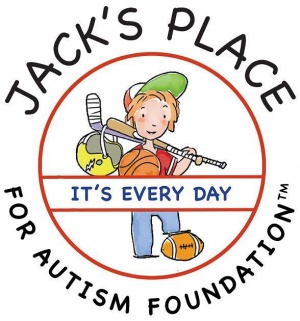If you’ve been living under a rock the past week, you may have missed the coverage of Pokémon Go. The game has taken the country by storm. It has seen a massive amount of downloads in just its first week and high volume of user activity. It’s so popular, that it’s already the number one mobile game in daily active users. Plenty of people are playing Pokémon Go, which made me wonder if there could possibly be any benefits for children with autism.
WHAT’S POKÉMON AND POKÉMON GO?
Pokémon is a game that’s about a trainer who travels across a fictional land to capture creatures known as Pokémon. These critters are the equivalent to our animals and critters of the world. The goal Pokémon games are to capture all the Pokémon, defeat gym leaders and trainers to become Pokémon champion. Pokémon Go is a game where players travel around the real world, capturing Pokémon and battling with them at gyms. The Pokémon appear on phone screen using something known as augmented reality. As for gyms and Pokéstops (areas where you can collect items for your quest), they are pre-placed using a map of the world.
WHAT ARE THE BENEFITS?
For many parents with children on the autism spectrum, getting them outside of their comfort zone is difficult. An example could be as simple as having to take the child with you somewhere to run an errand. The app requires players to stay concentrated on their phone screen, which means fixation is a norm. During moments when the child is out of his or her comfort zone, having something to stay fixated on while being outside of normal areas is beneficial. At the very least, Pokémon Go can act as a tool to help the child have an easier transition. At most, Pokémon Go can encourage children with autism to be outside of their comfort zone more.
In addition to getting children with autism out of their comfort zone, it presents educational opportunities. As I said, Pokémon are creatures that reflect our real-life creatures. Children can learn how to classify animals and learn to associate Pokémon such as a Pidgey with a real life bird. Looking at it the other way, the child could see a bird and have it remind them of a Pidgey.
Most important though is how this game can encourage social skills. There are many people playing this game, so it’s natural to assume plenty of them are kids. I remember as a kid in elementary school when the Pokémon Trading Card game was the phenomena. Outside on the playground, in the cafeteria and even in class, people would be talking about Pokémon. Pokémon is still popular in elementary schools, so it’s hard to imagine that there wouldn’t be discussions during school hours. Having that common interest is all that’s needed to spark social conversations, and Pokémon is something plenty of kids will have a common interest in. Pokémon Go should be able to get kids with autism not just talking about it with their peers, but playing the game with them as well.
There’s no question that Pokémon Go can be beneficial for children on the autism spectrum. It has social and educational rewards to it, as well as a source of fixation should a chile be thrown off by a sudden change. The game is still very young, and with updates on the way, we can only hope this game becomes more beneficial for children on the autism spectrum. For more information on this game, visit Pokémon Go‘s web site.

